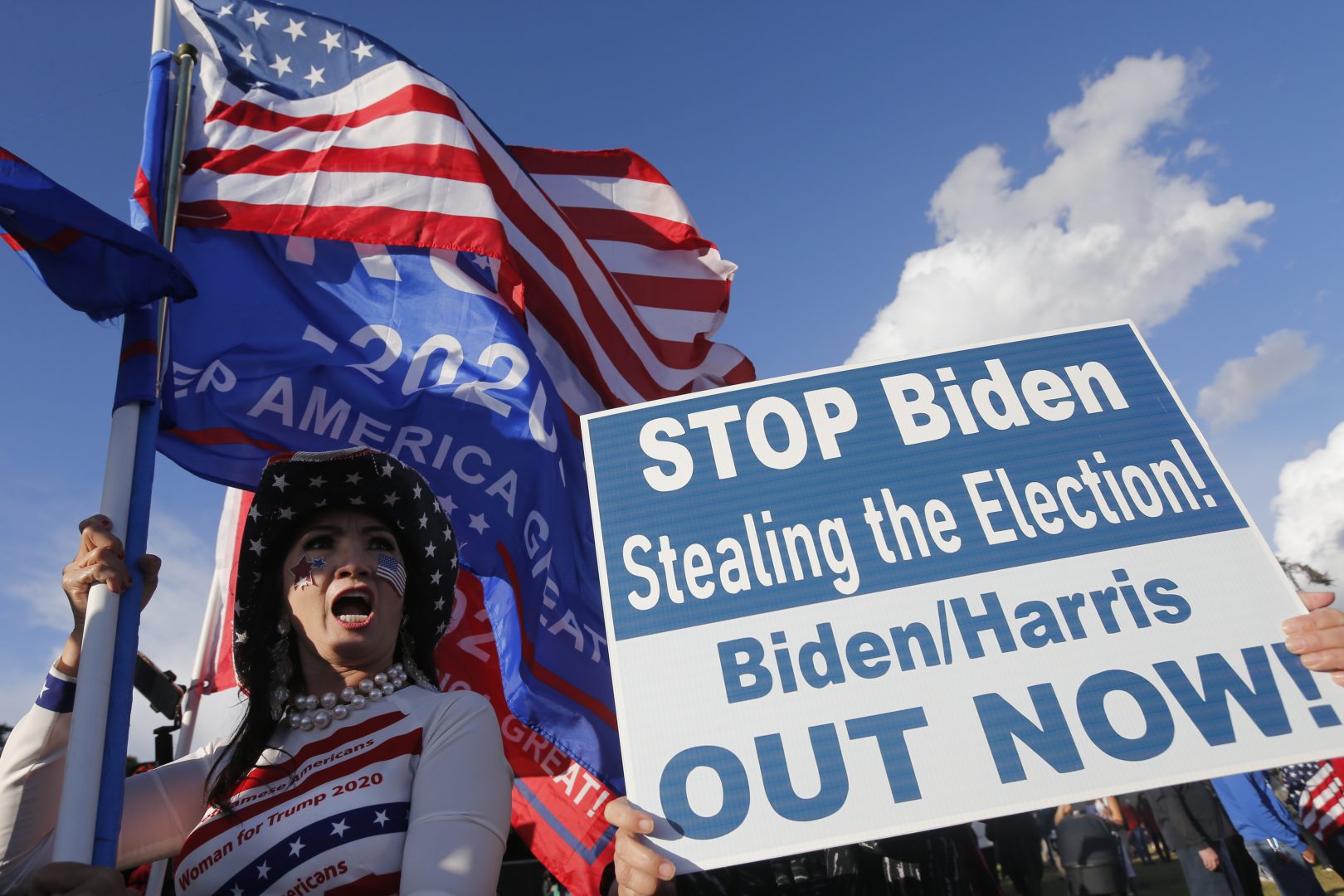New poll sheds light on how Trump’s election-fraud lie resonated in Pa.

- Julia Agos
February 4, 2021 | 4:45 PM
(Harrisburg) – Around one-third of Pennsylvania voters are “not at all confident” the outcome of the 2020 election accurately reflected how people cast their ballots.
The findings in a new poll reflect how deeply former President Donald Trump’s election fraud lie has taken root.
No evidence exists to support Trump and his GOP allies’ claims of widespread fraud. County, state and federal judges and public officials of both political parties, and election experts, have concluded the 2020 election was free and fair.
Pennsylvania legally certified its electoral votes Dec. 14, and multiple courts dismissed election-challenge cases for reasons including lack of evidence and lack of standing to sue.
A post-election Muhlenberg College poll of 406 Pennsylvanians found party affiliation, gender, and education contributed to the starkly contrasting views on the integrity of the results.
Survey results show 68% of Republicans say they do not have confidence in the accuracy of the count, compared to 82% of Democrats and a majority of Independents who say the election was fair.
Nearly half of Democrat respondents point to voter suppression as the biggest threat to safe and secure elections, while 59% of Republicans identify voter fraud as the main roadblock.
Pollster Chris Borick, political science professor and director of the Institute of Public Opinion at Muhlenberg College, says it is as if people are living in different worlds based on their political party.
“That type of belief, if you will, has played an enormous role in what happened last month in Washington and the continued level unrest we have in our republic,” he said.
Trump and his GOP allies’ election fraud lie came to a head on January 6th when pro-Trump extremists violently stormed the U-S Capitol, stormed the Capitol, trying to prevent Congress from certifying Joe Biden as president.
Borick notes that how a person voted also impacted how they feel about the validity of the vote.
Of those who voted by mail, 87 % say they believe the results are fair, while just 22% of in-person voters shared that view.
Nearly three-quarters of respondents with a bachelor’s degree say they are confident in the fairness of the election, while 51 percent of voters without a college degree are skeptical.
Borick says in his 25 years of studying Pennsylvania politics, he has never seen such stark divides.
“There’s nothing like this. We’ve had rancor. We’ve had division. But on core, fundamental principles like the legitimacy of the election this is new terrain in contemporary American life,” he said.
Editor’s Picks
*** This article has been archived for your research. The original version from witf.org can be found here ***


